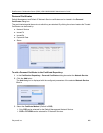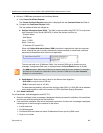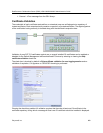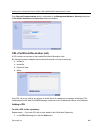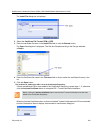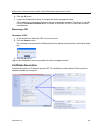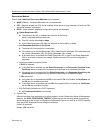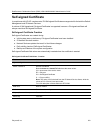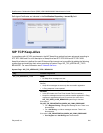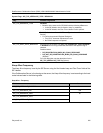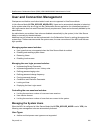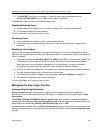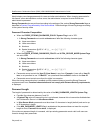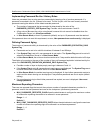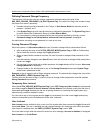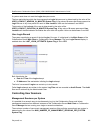
RealPresence Collaboration Server (RMX) 1500/1800/2000/4000 Administrator’s Guide
Polycom®, Inc. 814
Self-signed Certificates are indicated in the Certification Repository - Issued By field.
SIP TCP Keep-Alive
In compliance with UC APL requirements, the NAT Keep Alive method has been enhanced according to
IETF RFC 5626 and For a full description of Keep Alive see IETF RFC 5626 and IETF RFC 6223.
Keep Alive behavior is defined for each IP Network Service and can be modified by adding the following
system flags and modifying their values according to System Flags: SIP_TCP_KEEPALIVE_TYPE /
BEHAVIOR . For more information see IP Network Services .
System Flags - SIP_TCP_KEEPALIVE_TYPE / BEHAVIOR
Flag Possible Flag Values
SIP_TCP_KEEPALIVE_TYPE NONE
• No Keep Alive messages are sent.
MS (Default when Microsoft SIP Server Type is selected for the Network
Service).
• Keep Alive messages are sent only after successful registration.
• A Pong response is not expected.
RFC5626
• In the SIP Header, the Flow-Timer Header Field is mandatory.
• Keep Alive messages are sent only after successful registration. A Pong
response is expected and if none is received, the value of the
SIP_TCP_KEEP_ALIVE_BEHAVIOR system flag is checked.
If its value is:
DO_NOT_RE_REGISTRATION_WHEN_NO_PONG_RESPONSE
For a Register Dialog, a Reregister Message is sent. There is no
disconnection.
For a Call Dialog, no further messages are sent. There is no
disconnection.
If its value is: RE_REGISTRATION_WHEN_NO_PONG_RESPONSE
Both Register and Call Dialogs are disconnected.



